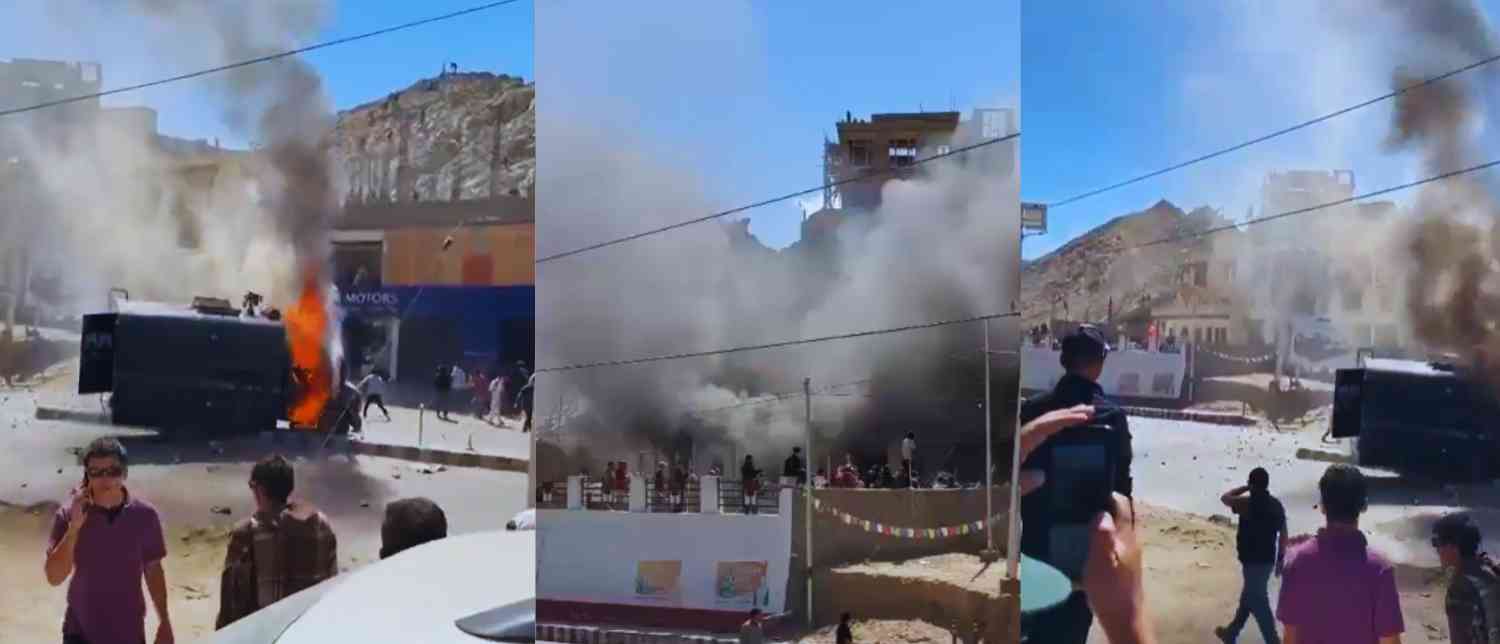Leh, the main town of Ladakh, witnessed tense scenes on Tuesday when protests demanding statehood and constitutional safeguards turned violent at the Bharatiya Janata Party (BJP) office. The demonstrations were part of a wider shutdown across the Union Territory, resulting in the closure of shops, markets, and offices as people rallied behind the call for greater rights and protections.
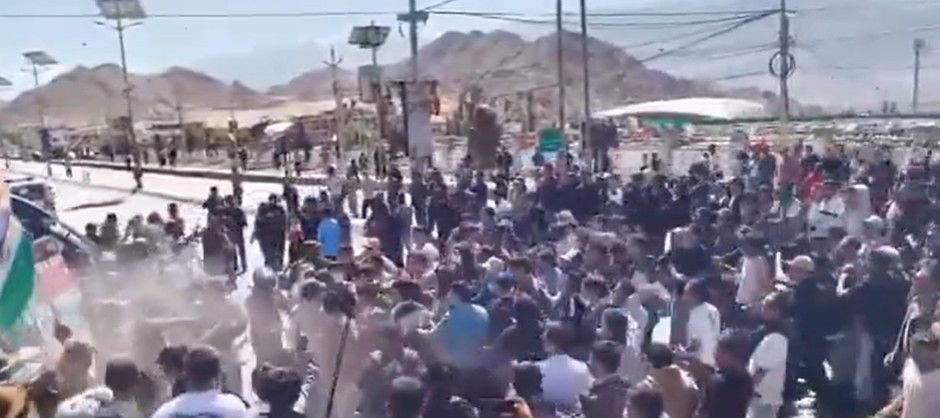
The situation escalated when hundreds of protesters gathered outside the BJP office, shouting slogans and displaying banners demanding statehood and special protections under the Constitution. What began as a peaceful demonstration soon grew tense as some protesters attempted to force entry into the office. Police on duty tried to disperse the crowd, and in the clashes that followed, tear gas was used while several people were reportedly injured, though no official figures have been confirmed. The violent turn of events reflected growing frustration among locals who believe their demands have been ignored for too long.
The core issue revolves around Ladakh’s political status and concerns about its future. Since 2019, when Article 370 was revoked and Jammu & Kashmir was split, Ladakh has remained a Union Territory without its own legislature. While many welcomed the new administrative setup at first, believing it would bring faster development and closer ties with New Delhi, discontent has grown steadily. People fear that without concrete safeguards, their land, jobs, and unique cultural identity may be threatened by outsiders and rapid changes in the fragile Himalayan region.
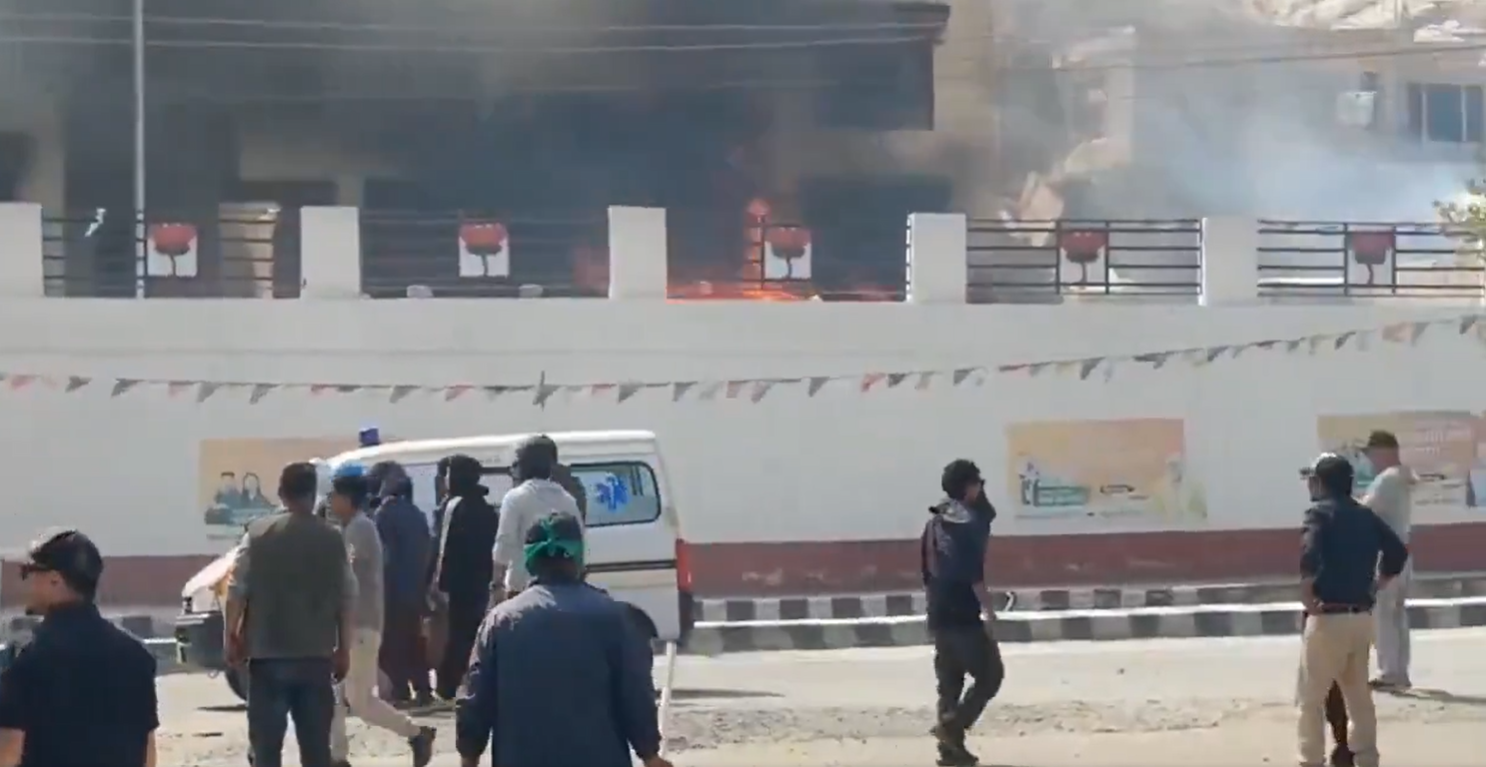
The demands of the protesters are clear. They want full statehood with legislative powers, protection under the Sixth Schedule of the Constitution to secure tribal rights, a separate Public Service Commission to prioritize employment for local youth, and rules that prevent outside exploitation of land and natural resources. Local groups, such as the Leh Apex Body and the Kargil Democratic Alliance, have joined hands despite past political differences, showing how widespread the concerns are across Ladakh.
The fact that the protests turned violent at the BJP office is not lost on observers. The party, which leads the government at the Centre, had promised accelerated development and protection after Ladakh was carved out as a Union Territory. Now, locals accuse it of failing to meet expectations. Several rounds of dialogue between Ladakhi representatives and the central government have taken place, but protesters argue that these meetings have led to no concrete safeguard or legal commitment.
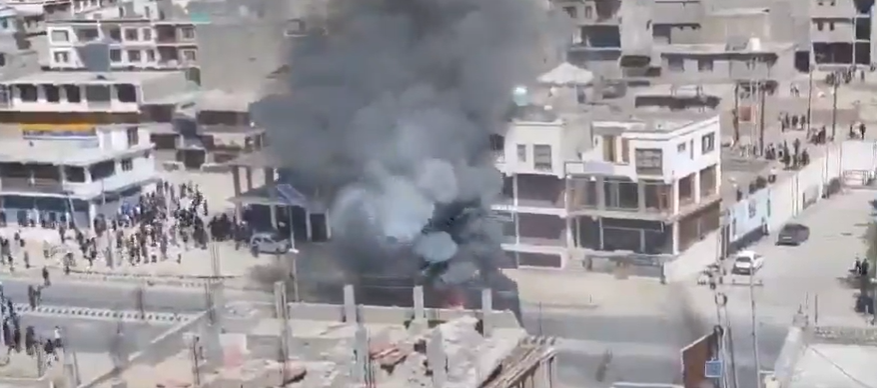
The growing unrest raises important questions that go beyond Ladakh. On one side, the government points toward roads, power supply, and connectivity projects as proof of development. On the other, local communities argue that development cannot come at the cost of losing identity and control over natural resources in such an ecologically sensitive region. Many experts suggest that the real challenge is to find a balance between growth and protection, where people feel secure about their rights while still benefiting from infrastructure projects.
The shutdown has shown how strongly people feel about the movement. Daily life came to a halt, and the unity of Leh and Kargil in staging protests indicates how the demand is unlikely to fade anytime soon. The use of force may control crowds in the short term, but without dialogue and genuine assurances, resentment could only deepen. The violent scenes in Leh serve as a warning that continued delay in decision-making may widen the divide between the Centre and the people of Ladakh.
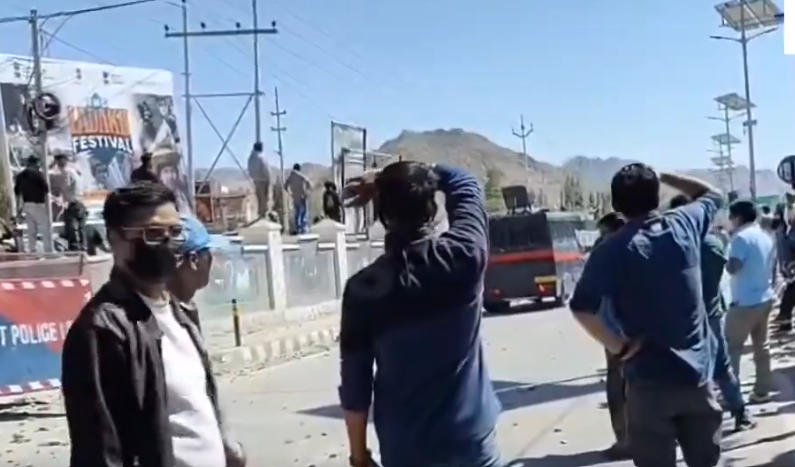
At present, security has been tightened in Leh as local leaders urge calm, but the protests are expected to continue. The coming weeks will be crucial for both the Centre and Ladakhi representatives. Unless meaningful steps are taken, the shutdowns, protests, and periodic clashes may become a recurring reality—keeping the question of Ladakh’s statehood alive and urgent in India’s political landscape.
With inputs from agencies
Image Source: Multiple agencies
© Copyright 2025. All Rights Reserved. Powered by Vygr Media.

